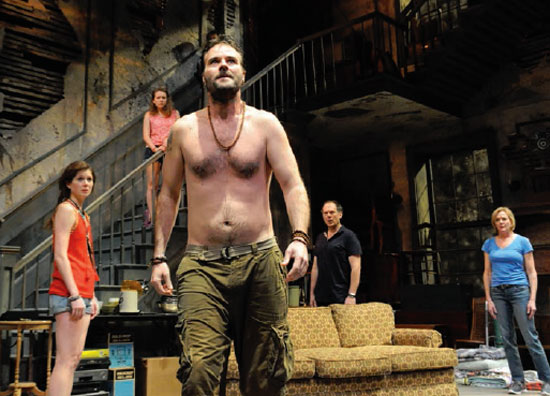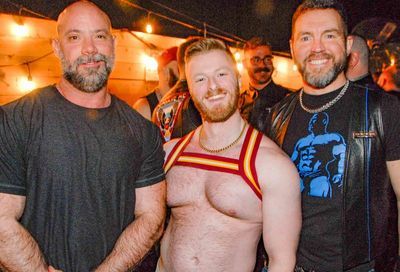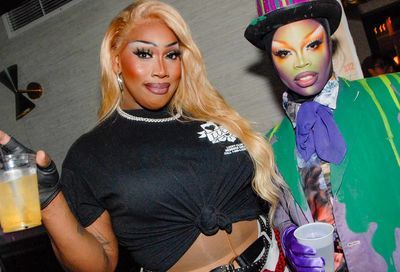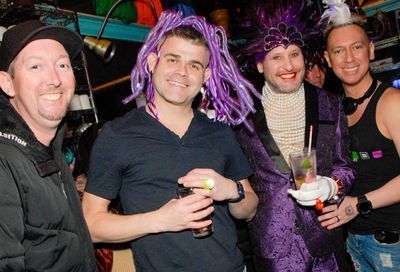Southern Man
This ensemble piece of a family in emotional vivisection is executed with wit, collective cohesion and intensity
In an extraordinary combination, Branden Jacobs-Jenkins’s Appropriate is funny, unflinchingly honest, and awful in the best possible way. Somewhere in the neighborhood of Tracy Lett’s August: Osage County, Jacobs-Jenkins offers another dysfunctional extended family who do their best to feint, dive and provoke one another while he herds them toward the difficult, elusive and messy truths they both want and dread. And not unlike the works of Tom Stoppard, Jacob-Jenkins’s process is as intellectual as it is emotionally intuitive: a complex construct of motives, wants and needs in which every knot and loose end has its purpose – even if the purpose is to stay tangled or unresolved. And unlike so many dramas with a ”dark secret,” this one delivers because the secret is not the be all and end all; it is, far more authentically, lubricant to a bigger, older process.
Having said that, the secret here is well worth keeping and thus some circumspection is required. Suffice it to say that the action begins with the members of an extended and somewhat estranged family arriving from disparate corners to sell the large ramshackle house and hoarder’s stash of their recently deceased father. As they come to terms with his loss, his confusing array of possessions, and their own newly unanchored dynamic, tensions, to put it mildly, mount.

”Appropriate” at Woolly Mammoth Theatre Company
Photo by Stan Barouh
And though this premise may sound clichéd, it is anything but. The wonderful originality of this production starts with Clint Ramos’s spectacularly rendered set evoking the ancient, now dilapidated, Southern house on the verge of being reclaimed by the dank and moldy flora that surrounds it. Filled with a cleverly curated collection of the detritus of an eccentric old man, there are also the well-placed and gradually revealed vestiges of his recent decline. Hanging like a smell in the big room is the gloomy reckoning that comes with the death of an ambiguous and difficult person. In full complement, the lighting of Colin K. Bills brings the subtle grey-greens of the swampy light, the warm yellows of candlelight, and in scene segues, the patterns and ever-so-subtle colors of the imagination. And yet despite all this potent atmosphere and attention to detail, the set never intrudes, even though it does offer its own silent story.
And it is a story that comes like silent commentary as the family begins to grapple with the memory of the departed and all manner of family legacies. Coming out swinging is the angry, damaged Toni, daughter and sometime caregiver to her now deceased father and her adult yet wayward brother Franz. In a brilliant performance that carries the tortured heart (and plenty of the humor) of this play, Deborah Hazlett captures superbly the unrelenting blend of rage, hurt and confusion born of powerful, if mundane, pressures that have turned the screw long before the dark secret emerges. The question for Toni is what she will do with her inner chaos: let it lash her nearest and dearest like a whip (donning, perhaps, her father’s mantle); let it consume her; or something altogether else.
And this is what makes Jacobs-Jenkins a cut above. Toni is laid bare, but she is never boxed. She remains changeable, reactive and organic. She has been written to express, not to teach, and it’s inestimably refreshing.
Counterpoint to Toni’s volatility is brother Bo, the one who got away – from his Southern roots and, apparently too, his father. David Bishins’s Bo is credible and understated, oozing the quiet self-possession of the educated East Coast inner-suburbanite, and yet he is a strong enough presence to keep Hazlett’s Toni in balance. Hers is not the only perspective on this family and Bishin’s ability to keep Bo ”in the frame,” physically and expressively, shows this as much as Jacob-Jenkins tells it. And although there is not quite enough in the way of long-married chemistry between Bo and his wife Rachael, Beth Hylton gives her uncomfortable in-law some giggle-worthy traits and holds her own with a quivery outrage when the fur begins to fly.
Bringing much color are Tim Getman as repenting ne’er-do-well Franz and Caitlin McColl as his ridiculously precious girlfriend, River. Although they are perhaps the most caricatured of the characters, both Getman and McColl have the skill to bring the inherent humor in these two to the fore and yet move just as easily into the real and palpable. As Toni’s teenaged son Rhys, a chronically overlooked and misunderstood kid who is already his own worst enemy, Josh Adams offers a beautifully understated, pitch-perfect guileless pathos that leaves one rooting for him and his diminished expectations. Convincing and possessed of some great comic timing, Maya Brettell as Bo and Rachael’s tween daughter Cassie, is a memorable symbol of all that is morally unhinged in the 21st century young. She plays well against Adams’s Rhys and it is her ebullient innocence that tells us much of what Rhys has lost.





To Dec. 1
Woolly Mammoth Theatre Co.
$45-$82.50
202-393-3939
641 D St. NW
woollymammoth.net
Yet it is in some ways a disservice to put these performances into relief because, as much as Toni drives this train, this is truly an ensemble piece. There is an entirety here – a family in emotional vivisection – and credit must go to the actors for their collective cohesion, intensity and shared vision. And such is the skill of director Liesl Tommy who ensures the emotional momentum and pace, even when briefly threatened by some overdone mayhem (which nevertheless sets up one of the plays funniest moments).
And, indeed, there may be a few other odd moments here where the axis wobbles, but they fade into insignificance in the face of Jacob-Jenkins’s incisive and uncompromising quest for so many truths. And whatever one makes of these truths, for he does not dictate it, there is one universal: No matter how elaborate one’s personal myth, there is always someone there to level it – and more often than not it’s family.
Support Metro Weekly’s Journalism
These are challenging times for news organizations. And yet it’s crucial we stay active and provide vital resources and information to both our local readers and the world. So won’t you please take a moment and consider supporting Metro Weekly with a membership? For as little as $5 a month, you can help ensure Metro Weekly magazine and MetroWeekly.com remain free, viable resources as we provide the best, most diverse, culturally-resonant LGBTQ coverage in both the D.C. region and around the world. Memberships come with exclusive perks and discounts, your own personal digital delivery of each week’s magazine (and an archive), access to our Member's Lounge when it launches this fall, and exclusive members-only items like Metro Weekly Membership Mugs and Tote Bags! Check out all our membership levels here and please join us today!






















